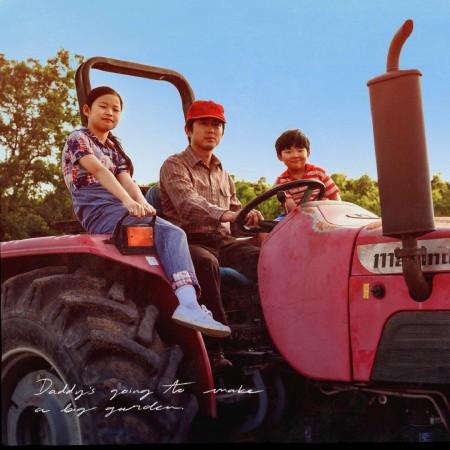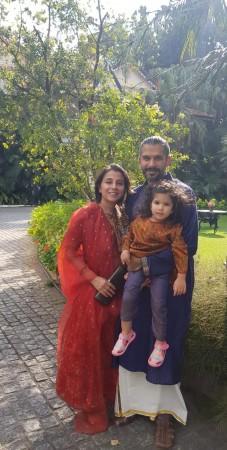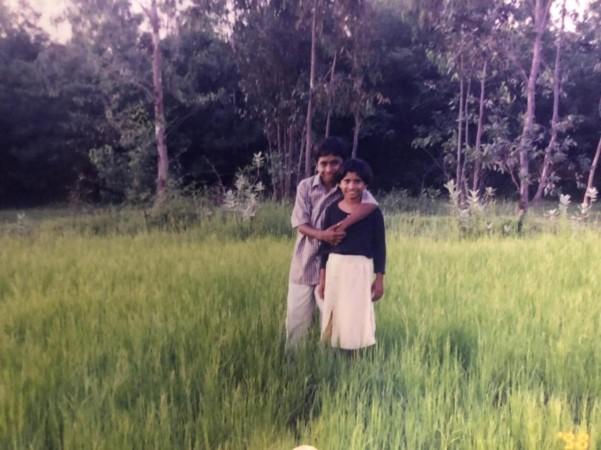Minari, Minari. Wonderful Minari. Minari is truly the best. It grows anywhere, like weeds. So anyone can pick and eat it. Rich or poor, anyone can enjoy it and be healthy. Minari can be put in kimchi, put in stew, put in soup. It can be medicine if you are sick. Minari is wonderful, wonderful!
The above lines are from an impromptu rhyme put together by a grandmother and her grandchild while growing water celery (minari in Korean) in a tiny forest creek. What makes these lines special, you ask? The rhyme is the essence of this film.
Minari, a symbol of nature's effortless existence in abundance.
The award-winning, critically-acclaimed Korean film written and directed by Lee Isaac Chung is an ordinary story of a family's struggle for survival, for sharing love, and attempting to stick together (sleep together in this case). But what makes it extraordinary is its characters and the circumstances they go through to come out stronger.

Minari - the plot review
In the 1980s' rural Arkansas, Jacob Yi (Steven Yeun) dreams of growing a garden and moves his entire family from California to fulfill his dream. He tells his 7-year-old son David (Alan S. Kim), "This is the best dirt in America. Daddy is going to make a big garden."
But little does the son and the rest of the family know that daddy has got 50-acre land to become a farmer; grow Korean produce and make a living by selling it. Monica (Yeri Han), Jacob's wife is skeptical of his husband's decision and is constantly irked by the idea. She is concerned about the family's falling economic situation and her son's fading heart. Their other child Anne (Noel Cho) is a constant support system to the rest of the family.
For Jacob and Monica who work at hatcheries separating male chicks from females for a living—their love marriage starts to fall apart after the big move to the farm. Jacob's passion for running the farm, jeopardizing his family's comfort for ensuring his crops are well-off, preferring his dream over their reality doesn't go down too well with Monica. But Jacob has his reasons.
Jacob who watches male chicks get incinerated day in, day out tells his son upon being asked why they are 'discarded'. "Male chicks don't taste good; they can't lay eggs and have no use. So you and I should try to be useful." As a typical father who wants to give security to his children, Jacob wants to succeed at his dream and give them a purposeful life closer to nature.
The life of this story and film has to be the grandmother who arrives in the picture rather later. Soon-ja (Academy award winner Youn Yuh Jung) brings with her some money, packets of Korean chilli powder, anchovies, and some minari seeds.
While Jacob struggles to keep his farm alive and thriving, Soon-ja casually grows her tiny minari garden down by the creek stream. Even getting water from there for the house chores when the taps run dry to keep the crops growing. Man vs nature!
The film has its moments, learnings, tragedy that pulls them apart, bring them back together but the message is simple yet profuse. Towards the end, as the cardiologist tells the family about David's recovery, "... Must be the Ozark water. Whatever you are doing, don't change a thing."
Isn't that what nature does to us people—healing.
From reel to real; Minari plot gets real in India
As the story of Minari wins hearts the world over, International Business Times speaks to families who gave up on big-city chaos to live a humble dream of farming and living in abundance. And just like the film, their stories too celebrate the graph of lows and highs.
Reema Gupta, an investment banker turned farmer, who lives on a farm on the outskirts of Bangalore with her 3-year-old daughter, Football coach husband, and extended family, 2017 was a big year as they moved to their farm for good. While she was engaged with nature and sustainable efforts since 2007, her plans eventually materialized only a decade later.

While talking to IBTimes, the founder of The Slow Farm Reema shares, "My daughter holds earthworms in her hands, eats a pomelo which most city adults can't, and is excited to find snakes on the farm. She knows about all the fruits grown here and eats mango and sapota along with the peels; she is a mini-cow. This is for her. She is the heir of this space and I feel proud to see her so close to nature."
She adds, "While most people feel it's an easy life, it has its own set of challenges, financial, natural—one needs to get comfortable with the idea that anything can be lost to nature within no time. My husband needs to be away for his work, and sometimes it is lonely being apart but when he is back, he is a hands-on farmer."
Narsanna and Padma Koppula, India's well-known permaculture couple moved to a small town Pastapur in Telangana almost three decades ago to live their big farming dream. They were also involved with rural development and spent most of their time shuffling from one village to another.
Their daughter Sneha who moved from the US for good to be on the farm shares with IBTimes, "Most of our childhood was on the farm. My elder brother Harin and I still fondly remember the times when we would collect seeds of fruits eaten by us or random seed pods found on the ground and sow them in the nursery pockets, watch them grow."

Both Harin and Sneha lived in the US for five years before moving back to the farm to join their parents again.
She adds, "I am lucky to have parents who have created this beautiful ecosystem for all the life forms. You can see life thriving around us with fewer interventions. The skills that we are developing being on the farm are life skills which would let us live anywhere in this world with the most minimal resources."


!['Had denied Housefull franchise as they wanted me to wear a bikini': Tia Bajpai on turning down bold scripts [Exclusive] 'Had denied Housefull franchise as they wanted me to wear a bikini': Tia Bajpai on turning down bold scripts [Exclusive]](https://data1.ibtimes.co.in/en/full/806605/had-denied-housefull-franchise-they-wanted-me-wear-bikini-tia-bajpai-turning-down-bold.png?w=220&h=135&l=50&t=40)


!['Had denied Housefull franchise as they wanted me to wear a bikini': Tia Bajpai on turning down bold scripts [Exclusive]](https://data1.ibtimes.co.in/en/full/806605/had-denied-housefull-franchise-they-wanted-me-wear-bikini-tia-bajpai-turning-down-bold.png?w=220&h=135)


![Nayanthara and Dhanush ignore each other as they attend wedding amid feud over Nayanthara's Netflix documentary row [Watch]](https://data1.ibtimes.co.in/en/full/806599/nayanthara-dhanush-ignore-each-other-they-attend-wedding-amid-feud-over-nayantharas-netflix.jpg?w=220&h=135)